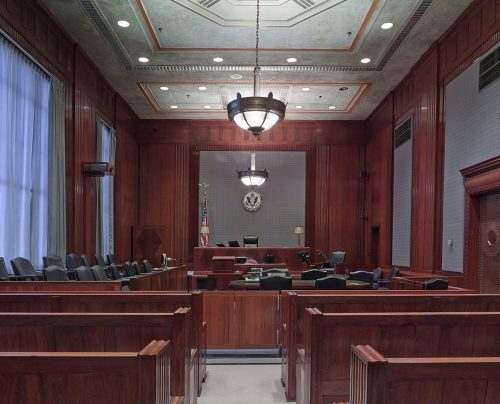If I could have crawled under the counsel’s table or magically disappeared, I would have. Unfortunately, neither was an option.
My star expert witness is doing his best to answer questions about his notes and emails during cross-examination. The defense lawyer asks about each note in painfully slow fashion. Mr. Defense Lawyer asks the “star” expert whether he asked the plaintiff’s lawyer (me) the following questions:
- “Should I wink at the jury?”
- “Is it alright to smile at the jurors?”
- “Will you give me cues [prompts] during my testimony?”
- “Remind me, what is this case about?”
- “What do you want me to say?”
Ouch! Yes, almost tragically, these were statements contained in the handwritten notes of our “star” expert witness. With each question, the pain became immeasurably worse and it quickly became obvious that the expert was clueless…and the trial would be lost.
I previously advised the expert that his entire file materials would be fodder for cross-examination and he assured me, “There’s absolutely nothing to worry about.” Obviously, taking the expert’s word at face value was a HUGE mistake.
Never Sanitize Your Expert’s File
Many defense lawyers (and some plaintiffs’ lawyers) sanitize their experts’ files before trial. The lawyers scour the expert’s file and when they find a note or email that could be damaging to the case, they remove it from the file. When asked whether they brought their entire file, the expert is instructed to answer, “Yes”. Make no mistake, the expert is committing perjury.
I always tell expert witnesses that they should NEVER remove anything from their file. All emails, handwritten notes, invoices and correspondence must be retained in the file and at the time of trial, they will be disclosed to the defense lawyer. Regardless of what others do, this is the right thing. I would rather lose the case than lose my integrity.
3 Simple Steps for Avoiding Catastrophe
Truth be told, the expert is not to blame for the Nightmare on Elk Street. The attorney (me) is the only one to blame because I didn’t prepare the witness and do my homework. This nightmare would not have happened had I followed these 3 simple steps.
Step #1: Warn Your Expert from Day One
Here’s the problem: your experts don’t know what you know—specifically, that every note, email and letter will be prime material for cross-examination at the time of trial. You must warn your expert of this in the initial retainer letter and repeat the warnings verbally throughout the case.
The initial retainer letter to the expert witness should have a warning about handwritten notes, emails and reports:
You are not required to prepare a written report, or summaries of your opinions in notes or emails. We do not want you to prepare a written report, notes or emails of your opinions.
Your handwritten and electronic notes must be disclosed to the defense counsel at the time of trial and any written notes/reports or emails will be the subject of cross-examination at trial. The defense counsel will attempt to use your notes and emails to challenge your character, integrity and opinions.
With this letter, your expert is on notice of the possible dangers of note-keeping. But let’s face it, your expert may not even read your letter and even if she does, it will be long forgotten by the time of trial. One written warning is not enough.
Step #2: Review Every Note and Email
You have to sit down with your expert and review every single note and email that she possesses. You have to view each scrap of paper from the vantage point of the defense lawyer, namely, how will the defense lawyer try to use this? Nothing is too small or insignificant. If you don’t take the time to review every note with the expert, the defense lawyer will exaggerate and try to mislead the jury.
Once you’ve reviewed every note, you need to get your expert ready to answer questions about them. Defuse the cross-examination by asking your expert about her notes during direct examination.
Question: Why did you write a note asking whether you look at the jury?
Answer: It’s been 15 years since I last testified in court and I forgot where I am supposed to look when I testify.
Perfect answer? Perhaps not, but it beats the hell out of letting the defense lawyer exaggerate and mislead the jurors about each note. For every note, have the expert quickly explain why it was written and eliminate the potential cross-examination material for the defense counsel.
Step #3: Do Your Homework about the Expert
Never assume your expert witness is a saint. Before trial, have your paralegal conduct an exhaustive research about the expert’s prior trial testimony and ethical and disciplinary history. If there are any skeletons in your expert’s closet, you need to know.
Don’t forget to warn your expert that the defense lawyer will know everything about her.
- Are there any issues that tend to come up repeatedly during cross examination when you testify?
- Have you ever had any licensing or ethical issues?
- Is there anything that you think I should know about you?
If there is damaging information about your expert, you need to know before she testifies (and hopefully in enough time to retain a different expert).
A Lesson Learned from Catastrophe
In hindsight, I am the only person to blame for the expert’s implosion at trial. I should have warned the expert about his notes/emails and I should have scoured his file with him before trial. Had I known what was coming, I would have fired the expert as soon as I became aware of his notes and emails.
Would any of this have changed the outcome of the trial? Probably not. But certainly, I would have been better prepared and just maybe, this would have taken some of the sting out of the cross examination.
